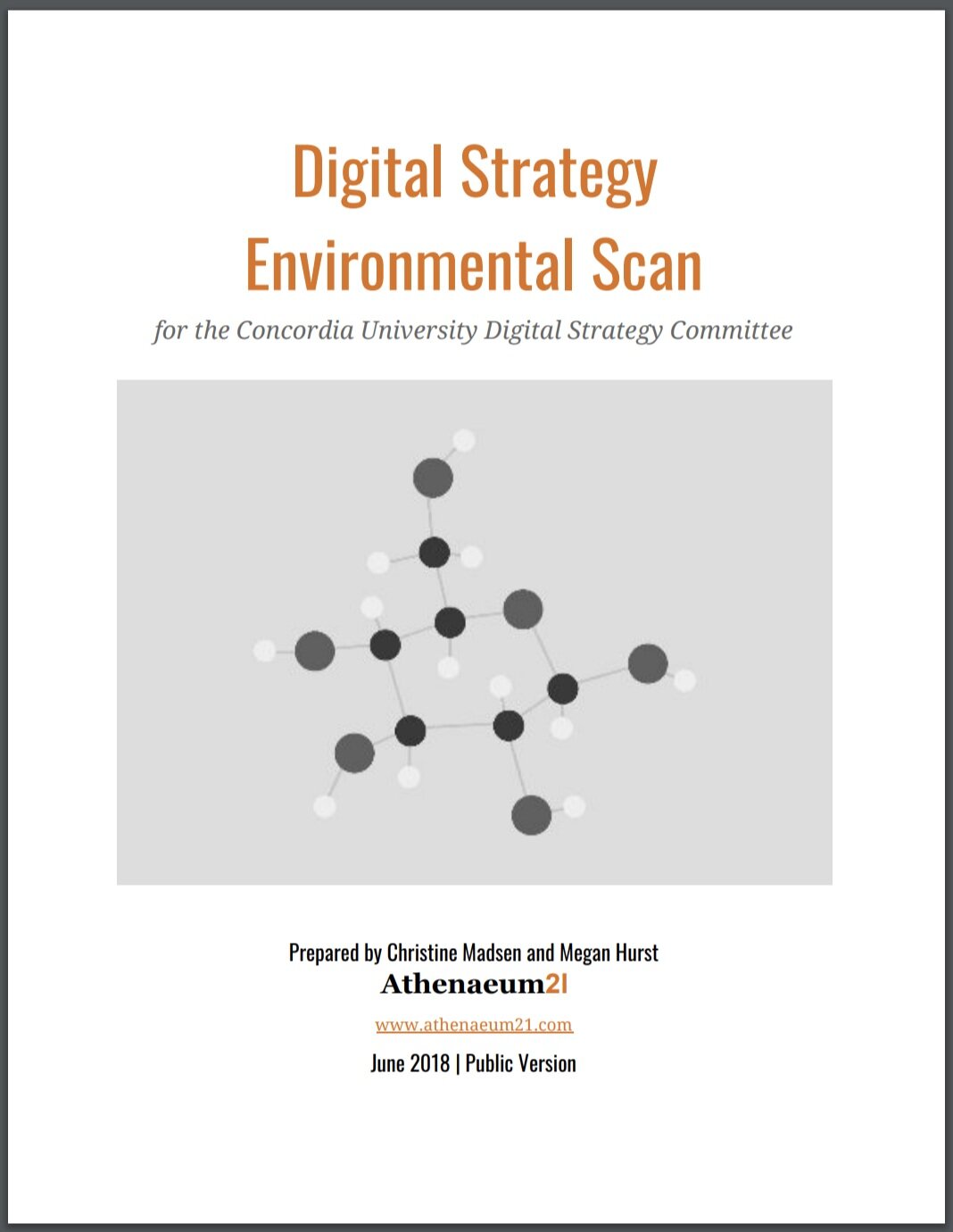The six key elements of successful digital strategies: Concordia University releases Athenaeum21's digital strategy environmental scan
Athenaeum21 (A21) is pleased to announce the public release of the “Digital Strategy Environmental Scan” report, commissioned by the Concordia University Digital Strategy Committee. The committee is charged with creating a path-breaking digital strategy for Concordia University and has undertaken work “to determine what actions we need to take to become a next-generation university that embraces the digital reality of our students, faculty, researchers, staff and life in general.”
Concordia University selected A21 in April 2018 to research higher education institutions’ and industries’ digital strategies and approaches to managing digital transformation. The committee charged A21 with conducting an environmental scan of how and why digital strategies in a range of organizations succeed, and also why they “fail.” A21 conducted a literature review, web review, and interviews with thought leaders and practitioners in digital transformation and digital skills-building in higher education, non-profits, and corporations. Interviewees included digital literacy researcher and expert Dr. Monica Bulger; Tore Burheim of the University of Bergen; Michael Edson of the UN Live Museum; Dr. Daniel Greenstein of the Bill and Melinda Gates Foundation; Melissa Highton of the University of Edinburgh; Dr. Gerald Kane, digital transformation researcher and professor of business at Boston College; Sarah Knight of Jisc; and Dr. Jill Leafstedt of Teaching and Learning Innovations, California State University, Channel Islands.
The answers as to why digital strategies succeed or fail are complex, but all hinge on six key elements: people, culture, leadership, organizational alignment, followed by data, and technology.
Starting with a definition of “digital strategy” (“a plan of action for the adoption of institutional processes and practices to transform the organization and culture to effectively and competitively function in an increasingly digital world”), the report provides examples of successful practices undertaken by organizations actively managing digital transformation in Canada, the United States and Europe, as well as examples of so-called “failure.” The answers as to why digital strategies succeed or fail are complex, but all hinge on six key elements that A21 identified during the research phase: People, Culture, Leadership, Organizational Alignment, followed by Data, and Technology.
About Concordia University / Université Concordia
Concordia University is a public comprehensive university located in Montreal, Quebec, Canada, serving more than 45,000 students, making the university among the largest in Canada by enrollment. Founded in 1974 with the merger of Loyola College and Sir George Williams University, the university has four faculties: Arts and Science, Fine Arts, Engineering and Computer Science, and the John Molson School of Business, offering over 300 undergraduate and 100 graduate programs and courses. The university recently completed its strategic planning process, which identified nine strategic directions. Coming out of that strategic planning process, the creation of a path-breaking digital strategy was identified as one of five priority transformation projects for the university.
About Athenaeum21 Consulting
Athenaeum21 (A21) is an international digital strategy and innovation consultancy serving organizations that want to derive more value from their past and future investments in data, information, knowledge management, and from the technologies that support them . A21’s approach includes data-driven, iterative assessment, strategy, and implementation, always aligning organizational missions and goals with end-user needs and behaviors. A21 clients include leading organizations in the research and development, publishing, higher education, and cultural heritage sectors in North America and Europe.

